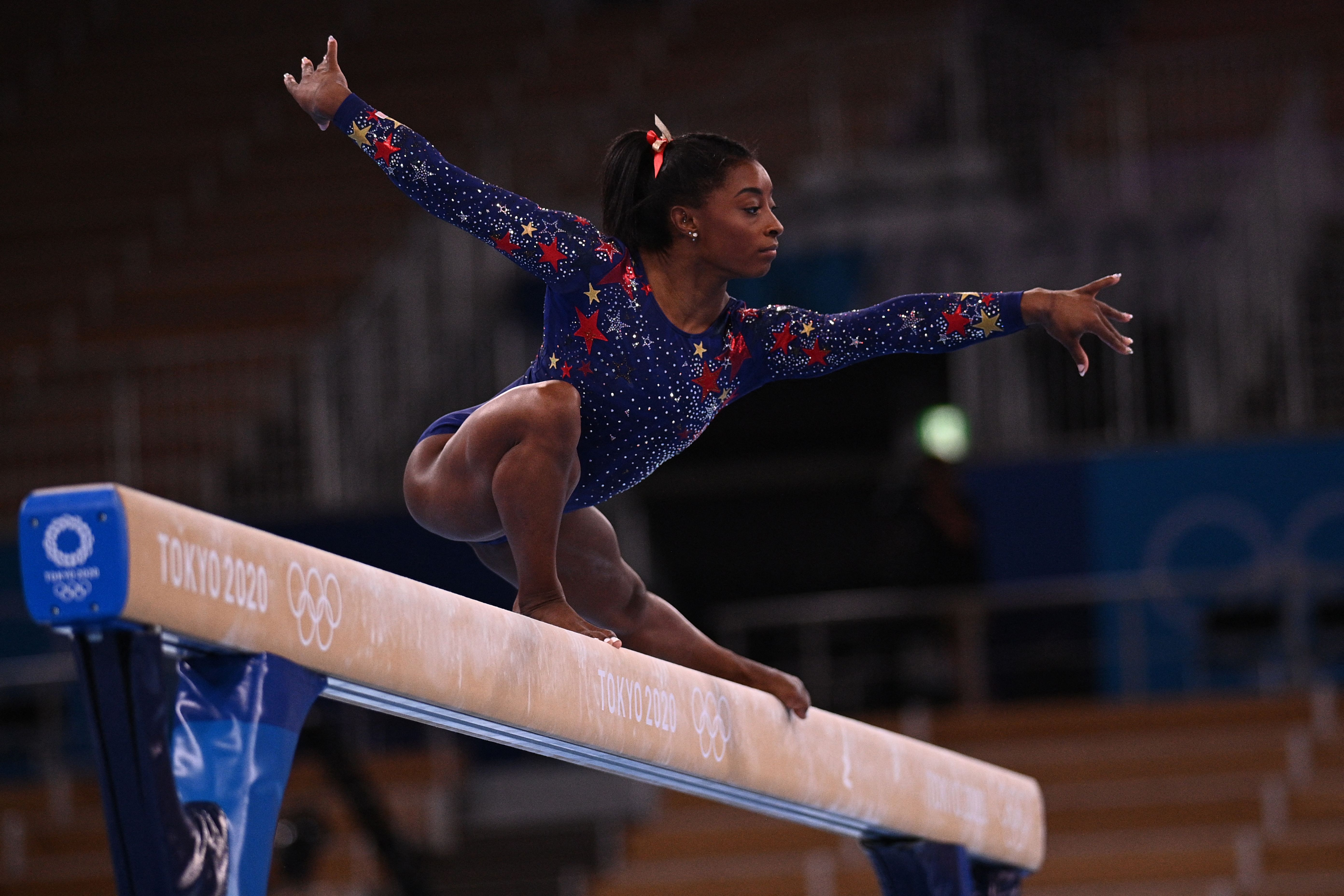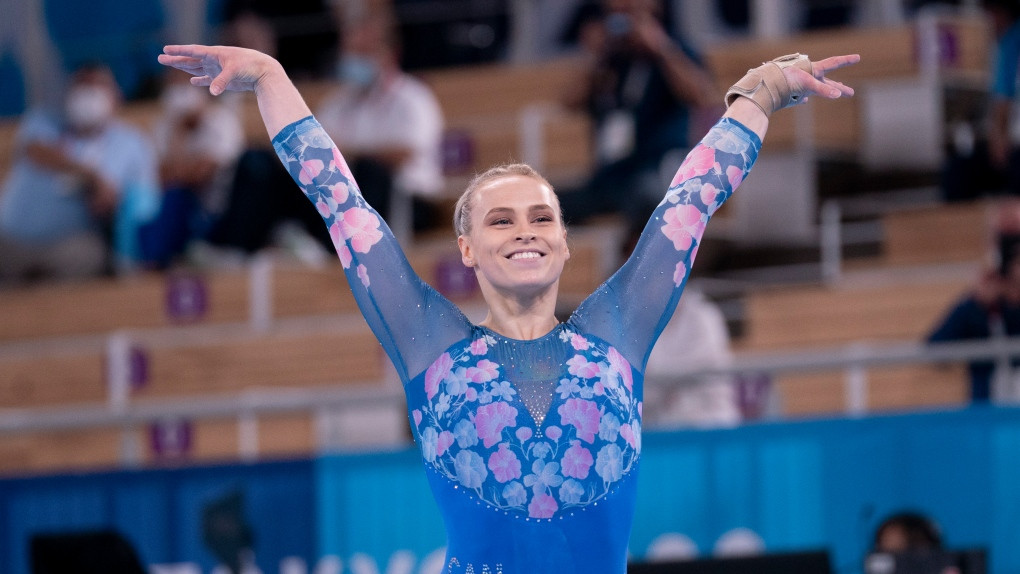As Simone Biles walked onto the floor for her routine Thursday in the women's gymnastics all-around final, I held my breath. This wasn't the first time, either, I had done the same during her routine Tuesday in the women's gymnastics team final.
But I probably didn't need to as Biles won gold for the all-around Thursday with Team USA's Suni Lee capturing bronze and the team coasting to a gold medal in the Tuesday team final, several points ahead of the silver medal winners.
Each time, I could breathe easy after, smiling as I watched the celebrations, their joy contagious. And I'm not the only one whose body tenses up as I watch the Paris Olympics 2024 events.
The father of Hezly Rivera, another gymnast on the U.S. women's team, wore a heart monitor during one of her routines at qualifiers, with NBC broadcasting the results. Before her routine started, his heart rate was already 164 bpm, and it hit a peak of 181 bpm during her routine. The average resting heart rate is between 60 and 100 bpm, so it's as if he was experiencing an intense workout as he watched.
Why We Get So Invested in the Olympics
Feeling stressed or anxious while watching the Olympics is not unusual for viewers.
"We feel like we do have a relationship with them as being a fan, that's the nervous system," says Peter Economou, an assistant professor of applied psychology at Rutgers University and the director of behavioral health and wellness for Rutgers University Athletics. But there are other things happening, too, that can't be seen as easily as a heart rate, he says, such as cortisol and other stress hormones that could also be elevated during those moments.
How Our Bodies Mirror Athletes' Emotions
And these actions of our nervous system are part of something that allows us to be social, says David J. Linden, a professor of neuroscience at Johns Hopkins University School of Medicine.
"When we watch someone else do something or receive touch or be scared or engaged, we have a tendency to map that person's sensations and the emotions associated with them," Linden says. "Even when we know it's fake, we can't help it. We're hardwired to put ourselves in the positions of other people."
The Power of National Pride
Sports fans feeling this way isn't unique to the Olympics, but it may be heightened by the nature of the games.
The difference can be that while fans normally bond with an athlete or a particular team, for example the New York Giants, it's centered on rooting for a side. But when you're rooting for a national team in the Olympics, the scale for emotions can change.
"I think it's fundamentally the same phenomenon, but there's something more compelling about doing it on a national scale. There aren't that many things that unite almost everyone in the country," Linden says.
The Benefits of Getting Invested in the Games
The reactions or stress in our bodies while we watch might sound like it could be dangerous, but it isn't.
"If anything, it's good. It's just good to get the blood flowing," Economou says.
The positive effects can be beyond our biology, also positively influencing us in other ways, including socially as a unifier.
Our bodies reacting this way is "a feature, not a bug, most of the time," Linden says.
The Evolution of Social Cohesion
"For most of human evolution, we lived in social groups of 20 to 50 people and were extremely dependent upon cooperation," Linden says. To be cognizant of others emotional states by tuning into "their facial expression, their voice, their posture, is something that is really important to be socially cohesive, work together, be willing to sacrifice for each other, and all of these things then come to play in a situation like when we're watching Simone Biles."
Seeing Beyond Differences
And seeing so many diverse elite athletes is also positive for viewers.
Economou, whose work has had an emphasis on multicultural competence and talking about diversity, inclusion and belonging points out there's a unification for fans: "Watching the Olympics and seeing people that look so different on one TV screen is really kind of beautiful."
Want more info on the Paris Olympics 2024? Here's where you can find all of USA TODAY's Olympics coverage. You also can subscribe to our dedicated Olympics newsletter, Chasing Gold.


















